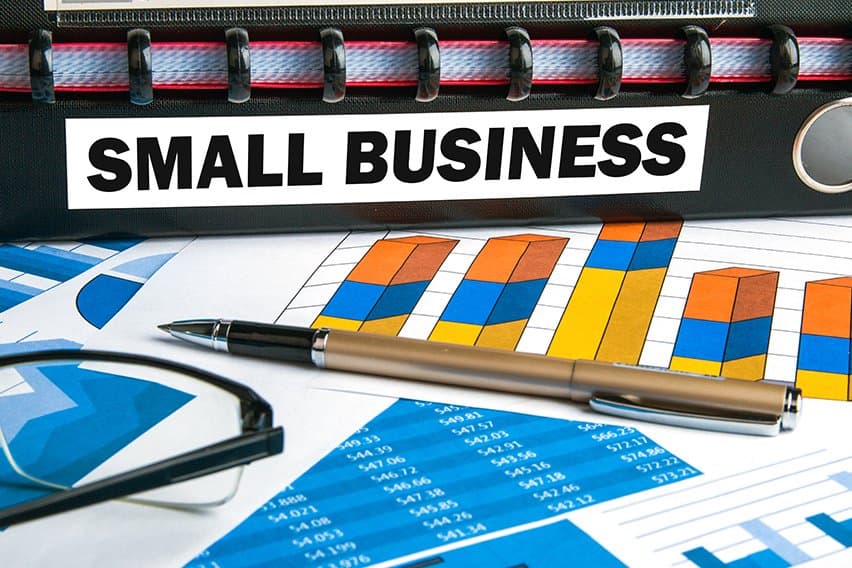How Much Do Accountants Charge for a Small Business? It Depends on Your Needs
Updated on March 28, 2019 | 4 min. read
Determining the exact type of accounting help your small business needs will determine the price you pay. Do you need the services of a bookkeeper, an accountant or a CPA (Certified Public Accountant)? The rates for each differ, and the total charge a small business pays will be reflective of the specialty chosen and the amount of work to be done.
How Much Does a Bookkeeper Cost?
According to PayScale, a website that provides salary and compensation information for a wide array of industries, a bookkeeper on average earns approximately 41K annually.
PayScale notes the average hourly rate is $16.67/hour.
A bookkeeper does not require any formal training. This is why the pay is low, compared to that of an accountant. As such, hiring a bookkeeper may be an affordable option for many small businesses.
What Does a Bookkeeper Do?
A bookkeeper’s main responsibility is in the area of data management. This is the recording and processing of all of a company’s income and expense transactions. A bookkeeper would be responsible for the accounting software that holds this financial information, training employees on expense entry procedures, and ensuring that the bookkeeping processes adhere to best practices. A bookkeeper would also verify that the company’s general ledger balances, and if not, troubleshoot to find the error.
A bookkeeper may have other duties, such as handling bank deposits, and assisting the company’s accountant with special requests.
How Much Does an Accountant Cost?
An accountant is at a higher level than a bookkeeper, and typically in an organization a bookkeeper would report to the accountant.
The 2017 median pay for an accountant, according to the Bureau of Labor Statistics, was approximately 69K.
However, if you run a small business and want to hire an accountant occasionally, you should keep in mind that the education and experience of the accountant will be reflected in the rates charged. Rates also vary depending on where you live.
As a result of all these factors, you could pay as little as $20.00 per hour or over $100.00 an hour for an accountant, there is no standard.
What Does an Accountant Do?
An accountant should be able to offer advice to a company’s owner about the best way to manage the business’s finances, the legal implications of planned courses of action,
and file the company’s tax returns.
An accountant would also generate financial statements and ensure that the business meets all government regulations requiring these reports.
How Much Should a CPA Cost?
A CPA, or “Certified Public Accountant” is at a much higher level than an accountant.
The 2017 average salary of a Certified Public Accountant, according to the Journal of Accountancy, was $119,000.
An hourly rate for a CPA also varies, depending on experience. A business owner can pay hundreds of dollars per hour, depending on what’s needed. As with the hiring of a regular accountant, there is no standard industry pricing.
The higher hourly rate and salary average are reflective of the fact that a CPA is the most highly trained accounting expert there is. This is because in order to become a CPA, the CPA must have completed specific education and work requirements and have passed a complex four-part exam. After earning the designation, a CPA has to take continuing education courses every year for as long as he wishes to remain certified. If he does not keep up with the education, he loses the CPA designation.
What Does a CPA Do?
A Certified Public Accountant will analyze and report on financial data. Typically, a CPA would be the one ultimately responsible for a company’s accounting policies and procedures, including bookkeeping methods, monitoring and reporting. If a company does not have a CPA, then those duties may fall to an accountant.
A CPA can be particularly helpful if he specializes in an area the client needs assistance with. Some areas of specialization for a CPA include:
- Forensic Accounting
- IT Auditing
- Taxation Specialization
- Non-profit
- Personal Financial Planning
- Managerial Accounting
A Certified Public Accountant can prepare an audited financial statement, or act as a taxpayer or company representative in discussion with the IRS. A regular accountant cannot do either of these things.
How Much Should a Small Business Spend on Accounting?
According to a 2015 report from Score (an American non-profit organization that helps small businesses through education and mentorship), only 16% of small businesses pay more than $20,000 annually in accounting, internal costs and legal fees.
When trying to decide who to hire for your accounting needs, consider the ask first. Perhaps you already have a system in place and just need your expenses and income recorded regularly. In that case, maybe a bookkeeper will do and you can hire an accountant at tax time or when you need some consultation. If you are in a very specific niche market, say you work in non-profit, then perhaps hiring a CPA who specializes in that area would be in your company’s best interest.












